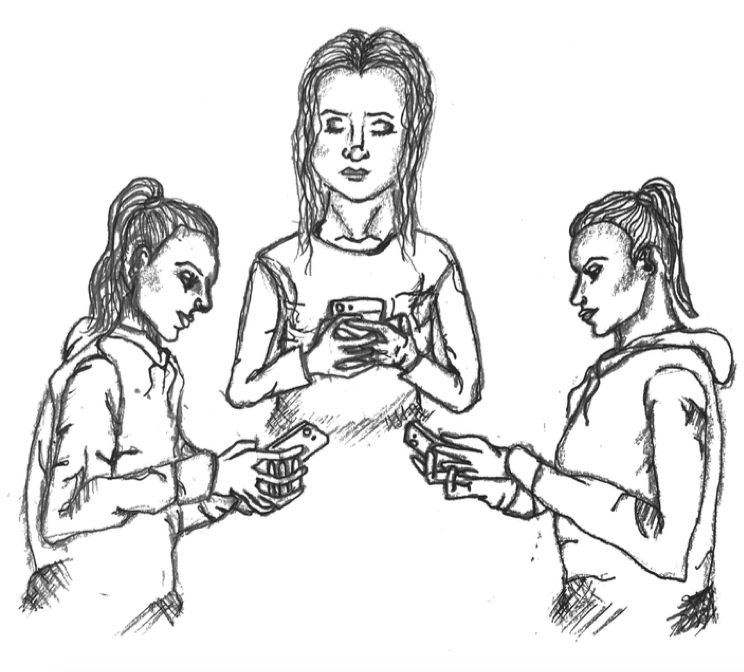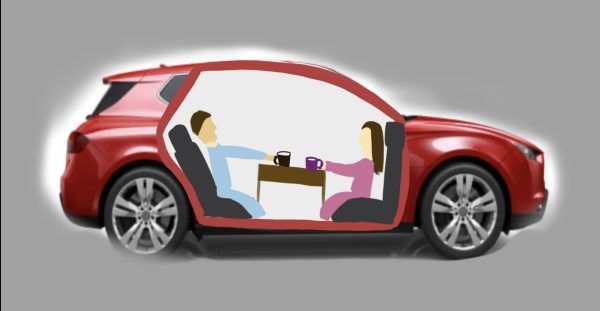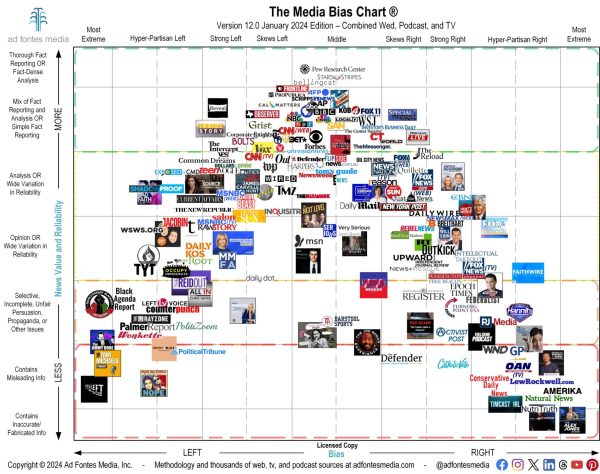Teenagers Are, in Fact, Becoming Less Social
The dangers of excessive phone use is nothing new. Schools and families have made teenagers well aware about these potential consequences, such as fear of missing out, increased anxiety and loss of social skills. Yet, too many teenagers continue these habits: scrolling for hours through their feed, snapchatting friends and posting pictures for their extensive list of followers, many of which they do not know. As a result, this generation has undoubtedly become less social. To save teens from struggling with genuine human interaction, teens should intentionally find ways to socialize face-to-face with peers and adults. Instead of embracing the outside world, teenagers instead turn to their phones and rely on them make connections.
Instead of making a new friend after a successful conversation, teens follow them on Instagram or add them on Snapchat, which can give rise to inauthentic small talk. And instead of holding on to friendships by spending time with these friends, teens hold on to friendships by maintaining a Snapchat streak—a 1,000 day streak has now become quite ordinary, which is highly concerning.
One cannot be so naive as to suggest that teenagers eliminate phone use altogether; phones will not disappear any time soon. Phones have many benefits that can make people more social if they do not overuse these applications; however, many teenagers take advantage of social media and even replace human interaction with these apps. Because of this behavior, teenagers lack basic social skills that should have been fostered in their adolescent years. Basic skills such as eye contact, social cues and emotional expression are lost in conversations. Many students feel more comfortable emailing teachers than physically speaking to them in person. Likewise, many teenagers prefer to fight with a friend or break up with a significant other over text than in person.
Social skills must be practiced before entering the real world. And scrolling through Instagram is not sufficient; getting a job, joining a club or meeting with friends is. When teenagers become older and enter the workforce, it may be more difficult to interact with colleagues and function in a professional setting if their only conflict-resolution skills are unfollowing people.
Genuine small-talk has evidently become a thing of the past. Interpersonal skills have declined as a result, and teenagers today appear to have a harder time completing basic tasks like talking on the phone or speaking to an adult. Sixty-five percent of millennials do not feel comfortable engaging with someone face-to face, according to One Poll. More serious scenarios such as college interviews or job interviews may most likely suffer as well, since teenagers have not been necessarily trained for such interactions.
In a society where teenager’s words have become so inauthentic, genuine conversations are diminishing due to the lack of social skills needed to carry out every day conversations. Teenagers should consider continuing basic conversations and prioritizing human interactions over digital interactions, for if not, dangerous consequences can occur.
Instead of looking down at one’s phone in the hallway while passing a mutual friend, say hello. Schedule a phone call once a week. Have a face-to-face conversation with someone who is not a close friend. Do not fall victim to the increasing temptation to value social media interaction over face-to-face conversation at the risk of losing essential social skills.

Molly O'Connell, class of 2019, is an Editor-in-Chief for The Rebellion. In school, she is a part of National Honor Society, Latin Club, and Student Council....












